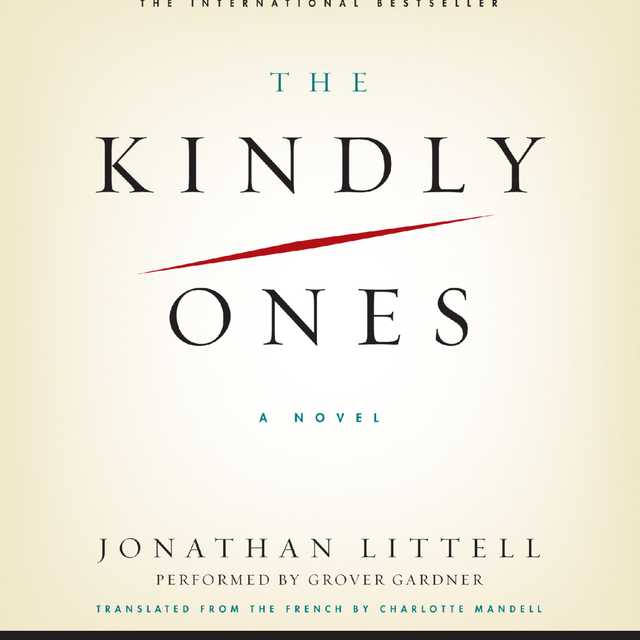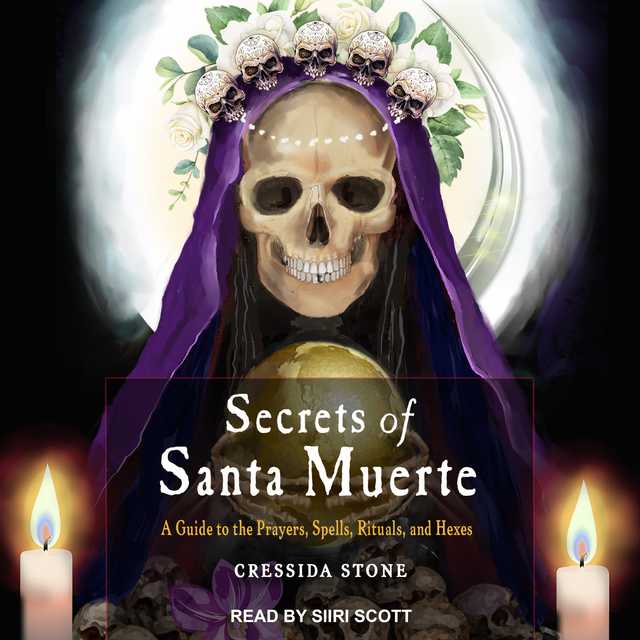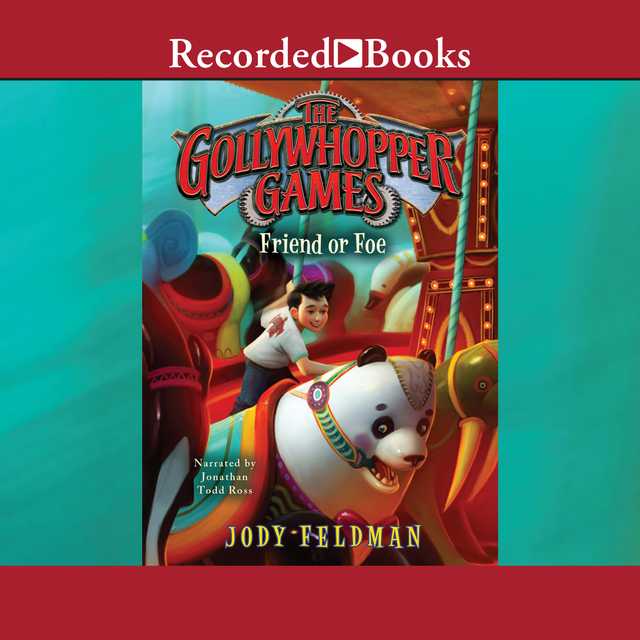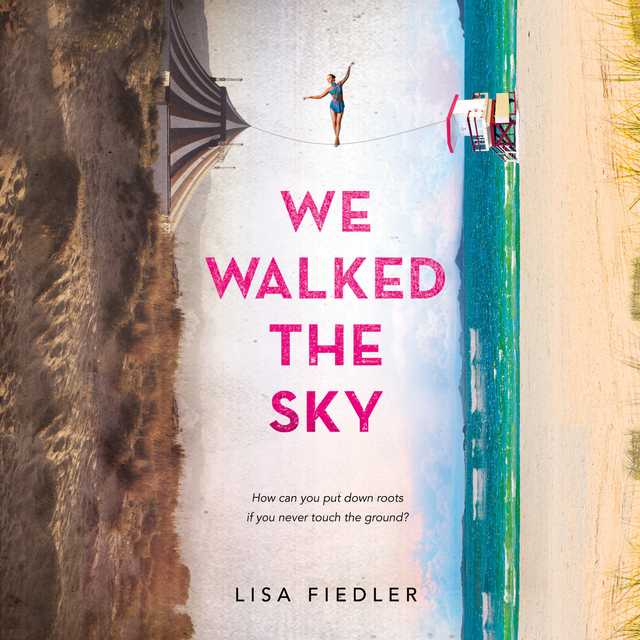The Kindly Ones Audiobook Summary
“Simply astounding. . . . The Kindly Ones is unmistakably the work of a profoundly gifted writer.” — Time
A literary prize-winner that has been an explosive bestseller all over the world, Jonathan Littell’s The Kindly Ones has been called “a brilliant Holocaust novel… a world-class masterpiece of astonishing brutality, originality, and force,” and “relentlessly fascinating, ambitious beyond scope,” by Michael Korda (Ike, With Wings Like Eagles). Destined to join the pantheon of classic epics of war such as Tolstoy’s War and Peace and Vasily Grossman’s Life and Fate, The Kindly Ones offers a profound and gripping experience of the horrors of World War II and the Holocaust.
Other Top Audiobooks
The Kindly Ones Audiobook Narrator
Grover Gardner is the narrator of The Kindly Ones audiobook that was written by Jonathan Littell
Jonathan Littell was born in New York to American parents, and grew up in the United States and France. He lives in Barcelona, Spain.
About the Author(s) of The Kindly Ones
Jonathan Littell is the author of The Kindly Ones
More From the Same
- Publisher : HarperAudio
- Abraham
- American Gods [TV Tie-In]
- Dead Ringer
- House of Sand and Fog
- Prey
The Kindly Ones Full Details
| Narrator | Grover Gardner |
| Length | 39 hours 6 minutes |
| Author | Jonathan Littell |
| Category | |
| Publisher | HarperAudio |
| Release date | March 03, 2009 |
| ISBN | 9780061890925 |
Subjects
The publisher of the The Kindly Ones is HarperAudio. includes the following subjects: The BISAC Subject Code is Fiction, Historical
Additional info
The publisher of the The Kindly Ones is HarperAudio. The imprint is HarperAudio. It is supplied by HarperAudio. The ISBN-13 is 9780061890925.
Global Availability
This book is only available in the United States.
Goodreads Reviews
Vit
May 16, 2022
The Kindly Ones is an unsentimental journey to the darkest side of the human history. Fascism turned the Germany into a factory of death… And every factory must have an effective technology… So any technology must be perfected and the technology of murder as well.Killing was a terrible thing; the reaction of the officers was a good proof of that, even if they didn’t all draw the consequences of their own reactions; and the man for whom killing was not a terrible thing, killing an armed man as well as an unarmed man, and an unarmed man as well as a woman and her child, was nothing but an animal, unworthy of belonging to a community of men. But it was possible that this terrible thing was also a necessary thing; and in that case we had to submit to this necessity. Our propaganda repeated over and over again that the Russians were Untermenschen, sub-humans; but I refused to believe that.The novel is an uncompromising story of fascism – starting with its bloodthirsty snarl at humanity and ending with its agony and rigor mortis. Ideology can pitilessly transform an ordinary man into a killing machine and use it until this machine breaks.But even in such inhumanly perfect society as fascist state there are corruption, intrigues, hatred and fear and they keep destroying the power from within. And the rest of humankind started destroying fascism from without.“So what’s the most atrocious thing you’ve seen?” He waved his hand: “Man, of course!”—“I meant medically.”—“Medically, atrocious things don’t interest me in the least. On the other hand one does see extraordinary curiosities, which completely revise our notions of what our poor bodies can endure.”—“What, for example?”—“Well, a man will catch a tiny piece of shrapnel in the calf that will slice through the peroneal artery and he’ll die in two minutes, still standing, his blood emptied into his boot without his noticing. Yet another man might take a bullet through the head, from one temple to the other, and will get up on his own to walk to the first-aid post.”—“What an insignificant thing we are,” I commented.—“Precisely.”War is a most atrocious evil and it is capable to lower human being to the primordial animal state so humans become monsters, beasts and cattle.
Glenn
August 27, 2018
“Please, mein Herr, shoot the children cleanly.”― Jonathan Littell, The Kindly OnesSuch a fiercely compelling novel, one of the most evil stories ever told. I had to listen to the audio book while taking my walks and let all the evil from the novel run down my legs and out the bottom of my feet; so much evil, thus my initial reluctance to write a review and highly recommend. However, the writing is excellent and the insights on human nature, history and culture numerous.The first-person narrator starts his story by telling us nowadays his head begins to rage with the roar of a crematorium, that when he is at a bar he pictures someone entering with a shotgun and blasting away; that when he is watching a film in a theater he imagines a live grenade under the seats; that when he is among dozens of happy families on a pleasant Sunday afternoon attending a festival in the town square he sees a car filled with explosives blowing up, turning the festivities into unending carnage, blood and guts everywhere, groan, screams, pitiful cries filling the air and then a long harrowing silence and emptiness for the survivors.Such are his thoughts since, as he also tells us, he is a veritable memory machine, unceasingly manufacturing memories whenever he has the time to think. Thus, he discovers when he once took a leave-of-absence from his responsibilities as manager of a lace factory, he can’t be left alone too long to think.So, Little’s novel has Maximilien Aue recounting memories in the spaces between his normal round of work and family, recounting memories as a man in his mid-fifties currently living in 1970s France. And what is the focus of his memories? Back when he was a young man, an Untersturmführer, that is, a Nazi SS Lieutenant living through the bitter cold and mass killings at the Russian Front, the slaughter of the concentration camps, the murders he committed with both his own pistol or his own hands, the perversions of his personal life and violence of his family life, all recounted and reported in chilling detail, in a narrative voice unflinchingly calculating and as cold and as hard as steel, say the steel of an abandoned tank in subzero January. As a good number of readers have remarked once finishing this thousand pager, not an easy read, in many respects, a downright harrowing and horrifying read. Once read, never forgotten.Rather than the killings, slaughter, perversions and other violations of humanity in Max’s waking life, I will synopsize four of the Nazi SS officer’s vivid, intense dreams:ONE: Max is on a high cliff watching a procession of gondolas glide down a river, he clearly sees his gorgeous identical twin sister sitting cross-legged, her long flowing black hair falling over her perfectly shaped breasts. (Sidebar: in real life Max is sexual infatuated and romantically in love with Una, his identical twin sister). Max shouts her name many times. She raises her head and their eyes meet. At this point Max feels violent stomach cramps, undoes his pants and squats down, but instead of shit, real live bees, spiders and scorpions gush out his anus. He screams out and then turns his head and sees identical twin young boys staring at him in silence.TWO: Max is gliding at different levels high up in the sky looking down, almost more like a camera than a human, looking down at a huge city set out on a uniform grid, seeing thousands and thousands of blue-eyed men and women and children, faceless, moving mechanically through birth, growth, adulthood and death creating a perfect equilibrium which reminds Max of what an ideal concentration camp would be like.THREE: In a dark bedroom Max sees a tall beautiful woman in a long white dress. He recognizes the woman is his sister. She suffers uncontrollable convulsions and diarrhea, black shit oozes through her white dress causing Max to experience great disgust and nausea.FOUR: Max exchanges cloths with his sister Una, he putting on her dress, she putting on his uniform. He sits in her chair at her dressing table and then Una carefully makes up his face, combing his hair, applying lipstick. Una then straps on an ebony phallus. After an intense session of intertwining like snakes, Max rests on the floor and says he is her sister and she is her brother to which Una replies that you are my sister and I am your brother.Of course, we could envision what a psychoanalyst, either a Freudian or a Jungian or an analyst from any other school would make of Max’s dreams. Let me simply conclude by saying that anybody wishing to read this novel must be prepared for the many more brutal, cruel and murderous scenes of Max’s waking life, reminding me of the hell scenes of the artist Hieronymus Bosch . Again, one of the most evil tales ever told.
William2
December 04, 2022
Notes (since the book is unsummarizable)1. Deeply transgressive novel that's Dovstvyeoskian in length and intellectual depth. I feel assailed by the book yet I keep on reading. 2. It reminds me a little of my emotional response while watching the World Trade Center collapse from my UWS rooftop. (In the days after, whenever a plane flew over, everyone would look up: "Oh, it's one of ours. . .") 3. The narrative often feels derived from post hoc historical considerations, but I suppose this is inevitable. For instance, the talk our Dr. Aue has with his friend Thomas about the possibility of the Wehrmacht failing to subdue Moscow before the winter. There’s a post-hoc feeling, too, when Sturmbannführer Blobel rants against the Wehrmacht’s efforts to distance themselves from the killing. Examples might be multiplied. So, I wonder, were these considerations undertaken by the Germans themselves during the war? But then isn’t this the problem with historical novels generally? Didn’t Tolstoy have to deal with it too?4. Years ago I began reading widely on the Holocaust. So it's almost as if I can recognize the source material as I read. No doubt I am sometimes mistaken, but sometimes I think I've absolutely nailed it. Here are a few of my suspicions.Ordinary Men by Christopher Browning Hitler’s Willing Executioners: Ordinary Germans and the Holocaust by Daniel Jonah Goldhagen. Albert Speer: His Battle with Truth by Gitta SerenyThe Nazi Doctors: Medical Killing and the Psychology of Genocide by Robert Jay LiftonRussia Under the Old Regime and The Russian Revolution by Richard PipesEichmann in Jerusalem by Hannah ArendtLife and Fate by Vasily Grossman (in the Stalingrad sections)Slaughterhouse-Five by Kurt VonnegutTimes Arrow by Martin AmisKaputt by Curzio MalaparteDeath Dealer: The Memoirs of the SS Kommandant at Auschwitz by Rudolf HössIn the Shadow of the Reich by Niklas Frank. Into That Darkness: An Examination of Conscience by Gitta Serenyetc.5. The Einsatzgruppen— death squads which entered Poland with the Wehrmacht in September 1939 — found the direct killing of Jews too traumatic. This repulsion was one of the reasons why an industrialized killing process requiring less human involvement had to be devised, resulting in the lethal adaptations of Auschwitz and other camps. These “factories” however were not up and running until late 1941 at the earliest, and most of the mass killing — gassing— began in 1942. “As the weeks went by, the officers acquired experience, and the soldiers got used to the procedures; at the same time, one could see that everyone was searching for his place in all this, thinking about what was happening, each in his own way. At table, at night, the men discussed the actions, told anecdotes, and compared their experiences, some sadly, others cheerfully. Still others were silent; they were the ones who had to be watched. We had already had two suicides; and one night, a man woke up emptying his rifle into the ceiling, he had to be held down by force, and a noncom had almost been killed. Some reacted with brutality, sometimes sadism: they struck at the condemned, tormented them before making them die; the officers tried to control these outbursts, but it was difficult, there were excesses. Very often our men photographed the executions; in their quarters, they exchanged their photos for tobacco, or stuck them to the wall - anyone could order prints of them. We knew, through the military censors, that many of them sent these photos to their families in Germany; some even made little albums of them, with captions: this phenomenon worried the hierarchy but seemed impossible to control. Even the officers were losing their grip. Once, while the Jews were digging, I surprised [SS officer] Bohr singing: ‘The earth is cold, the earth is sweet, dig, little Jew, dig deep.’ The Dolmetscher was translating; it shocked me deeply. I had known Bohr for some time now, he was a normal man, he had no particular animosity against the Jews, he did his duty as he was told; but obviously, it was eating at him, he wasn't reacting well. Of course there were [also] some genuine anti-Semites in the Kommando.” (p. 88-89)6. The author evinces a deep knowledge of the units and divisions and legions of the Wehrmacht and the SS, the place names, terrain, equipment, ranks (Hauptscharführer, Obersturmführer etc.), not to mention some of the many German euphemisms for killing. My favorites are Sonderbehandlung or special treatment (gassing), and Aktion or bloody massacre. Victor Klemperer wrote an entire book about such Nazi euphemisms; it’s called The Language of the Third Reich: LTI--Lingua Tertii Imperii.7. The author was about 38 when the novel was published by Gallimard in French, though he’s American and a Yale grad. One wonders in what way his father’s many novels of espionage — The Amateur, Mother Russia, etc. — were influential. The father was publishing in the 1970s when the author was in short pants. How fortunate such a dad must have been for the author's development. I am reminded of other literary fathers & sons, — a relatively rare phenomenon — Kingsley Amis & Martin Amis; etc.8. Dr. Aue’s speech about the ancient rituals of homosexuality is both preposterously long and clearly an evocation of Remembrance of Things Past. It cleverly seeks to provide his handsome young friend, whom he meets on leave in Crimea, with something like a National Socialist basis for homosexual behavior. "’After the thirteenth of June,’ I went on, ‘when it turned out that many of Röhm's accomplices, like Heine’s, were also his lovers, the Führer was afraid that the homosexuals might form a State within a State, a secret organization, like the Jews, which would pursue its own interests and not the interests of the Volk, an Order of the Third Sex, like our Black Order. That's what was behind the denunciations. [“The Night of Long Knives”] But it's a political problem, not an ideological one. From a truly National Socialist point of view, you could on the contrary regard brotherly love as the real cement of a warlike, creative Volksgemeinschaft. . .' — ‘Yes, but still! Homosexuals are effeminate, men-women as you said. How do you think a State could tolerate men that are unfit to be soldiers?’ — ‘You're wrong. It's a false notion that contrasts the virile soldier with the effeminate invert. That type of man does exist, of course, but he's a modern product of the corruption and degeneration of our cities, Jews or Jewified men still caught in the clutches of priests or ministers. Historically, the best soldiers, the elite soldiers, have always loved other men. They kept women, to watch over their household and give them children, but reserved all their emotions for their comrades. Look at Alexander! And Frederick the Great, even if no one wants to acknowledge it, was the same. The Greeks even drew a military principle from it: in Thebes, they created the Sacred Band, an army of three hundred men that was the most famous of its time. The men fought as couples, each man with his lover. . . .’” (p. 197)(See James Romm’s The Sacred Band: Three Hundred Theban Lovers Fighting to Save Greek Freedom.)9. In my view, the book doesn’t take off until page 291. It’s the winter of 1941-42 and the narrator and his fellow officers are 450 miles south of Stalingrad, in the Caucasus Mountains, distracting themselves with “Who’s the Jew?” Here’s a portion of the discussion:"‘From the Abwehr's standpoint,’ von Gilsa explained, ‘it's a purely objective question of the security of the rear areas. If these Bergjuden cause disturbances, hide saboteurs, or help partisans, then we have to treat them like any enemy group. But if they keep quiet, there's no reason to provoke the other tribes by comprehensive repressive measures.’ — ‘For my part," Bräutigam said in his slightly nasal voice, ‘I think we have to consider the internal relations of the Caucasian peoples as a whole. Do the mountain tribes regard these Bergjuden as belonging to them, or do they reject them as Fremdkörper [foreigners]? The fact that Herr Shadov intervened so vigorously in itself pleads in their favor.’ — ‘Herr Shadov may have, let's say, political reasons that we don't understand,’ Bierkamp suggested. ‘I agree with Dr. Bräutigam's premises, even if I cannot accept the conclusion he draws from them.’ He read some extracts from my [narrator Aue’s] report, concentrating on the opinion of the Wannsee Institute. ‘This,’ he added, ‘seems confirmed by all the reports of our Kommandos in the theater of operations of Army Group A. These reports show us that dislike of the Jews is general. The Aktions against the Jews — such as dismissals from public offices, yellow star, forced labor — all meet with full understanding from the general population and are heartily welcomed. Significant voices within the population even find actions so far against the Jews insufficient and demand more determined actions.’ — ‘You are quite right when it comes to the recently settled Russian Jews,’ Bräutigam retorted. ‘But we don't have the impression that this attitude extends to the so-called Bergjuden, whose presence dates back several centuries at least." He turned to Köstring: ‘I have here a copy of a communication to the Auswärtiges Amt from Professor Eiler. According to him, the Bergjuden are of Caucasian, Iranian, and Afghan descent and are not Jews, even if they have adopted the Mosaic religion.’ — ‘Excuse me,’ said Noeth, the Abwehr officer from the OKHG, ‘but where did they receive the Jewish religion from, then?’ — ‘That's not clear,’ Bräutigam replied….’” (p.295-96)The subject, historiography perverted for genocidal ends, has been explored elsewhere, but to my knowledge its treatment has not been equalled in fiction. 10. The virtues of narrative — continuity, catharsis, closure etc— are things that the Holocaust does not possess. The book abounds in the pleasures of storytelling; it’s masterly. There’s an account of famished soldiers dying in Stalingrad that’s terribly sad. Does it humanize the Einsatzgruppen, too? I’m afraid it does. No doubt this is what director Claude Lanzmann meant when he criticised the novel. Are the pleasures of narrative misplaced in such a story? Someone said, after Auschwitz to write a poem is barbaric. That’s a noble view. But, there is poetry, there is art.11. In the Stalingrad kessel – a few days before General Paulus's surrender to the Red Army — Dr Aue, feverish and lice-ridden, begins to ramble; his narration soon turns phantasmagorical."I was walking on the Volga . . . . In front of me, a dark hole opened up in the ice, quite wide, probably pierced by a high-caliber shell that had fallen short. . . . I dove in. The water was clear and welcoming, a maternal kind of warmth. The swift current created whirlpools that soon carried me away under the ice. All kinds of things were passing by me, which I could clearly make out in this green water: horses whose feet the current was moving as if they were galloping, fat and almost flat fish, bottom-feeders, Russian corpses with swollen faces, entwined in their curious brown capes, pieces of clothing and uniforms, tattered flags floating on their poles, a wagon wheel that, probably soaked in oil, was still burning as it swirled beneath the water. . . Above me, the ice formed an opaque screen, but the air lasted in my lungs, I wasn't worried and kept swimming, passing sunken barges full of handsome young men sitting in rows, their weapons still in their hands, little fish threading through their hair agitated by the current. Then slowly in front of me the water grew lighter, columns of green light plunged down from holes in the ice, became a forest, then melded into each other as the blocks of ice drifted farther apart. I finally rose back to the surface to regain my breath. . . . Upriver, to my left, a Russian ship was drifting in the current, lying on its side, gently burning. Despite the sun, a few large flakes of luminous snow were falling, which lay hidden as soon as they touched the water. Paddling with my hands, I turned around: the city, stretched all along the shore, lay hidden behind a thick curtain of black smoke. Above my head, seagulls were reeling and shrieking, looking at me curiously, or possibly calculatingly, then flying off to perch on a block of ice; the sea was still far away, though . . . ." (p. 415-416)And then it corkscrews into something close to slapstick. Dr Aue comes out onto the far side of the Volga where he sees a dirigible aloft and walks toward it. Soon uniformed men without military insignia accompany him aloft in a kind of balloonist's basket to meet a mad doctor (foreshadowing Auschwitz) whom he interviews then has to escape by climbing a ladder, running across the dirigible's convex surface chased by thugs with guns, before parachuting to safety. 12. Many historical figures appear. Heinrich Himmler, Adolf Eichmann, Rudolf Höss (see Death Dealer: The Memoirs of the SS Kommandant at Auschwitz), Odilo Globocnik, Josef Mengele, Albert Speer (see Albert Speer: His Battle with Truth), and Hitler himself, batshit in the Führerbunker. When Aue travels to Occupied Paris in the center of the book he meets old pro-Nazi friends again like Robert Brasillach, Lucien Rebatet, Charles Maurras, and is newly introduced to another rabid antisemite, Louis-Ferdinand Destouches (Celine). All the names but Celine's I had to look up. Moreover, Dr. Aue walks insouciantly around Paris. He's on convalescent leave and primarily concerned with his next posting. He's a careerist.13. Meanwhile a hideous extermination is taking place in Poland. This is the background to Aue's days. While cracking jokes with his friend Thomas, dining out, "having my ass drilled by unknown boys," (p. 763) taking his twin sister to Potsdam, seeking a new post, while all this and more transpires — 6 million Jews are executed. Goldhagen called it "eliminationist anti-semitism." Eleven million if we include the Roma, "asocials," homosexuals, and 3 million Soviet POWs who were starved to death in open camps.14. There's a twins motif. Dr. Aue and his sister, Una, are twins. When he goes to visit his mother in Italy, she is watching the children of friends, twins who can't be told apart. I think the image has popped up about five or six times. This might make it convenient for Aue when he visits Auschwitz, where Dr. Mengele performed infamous pseudo-scientific experiments on twins, causing enormous pain and death. See Robert Jay Lifton's The Nazi Doctors: Medical Killing and the Psychology of Genocide.15. A great enigma is the tussle within the SS between those who want to exterminate the Jews, and those who wish to employ them as slaves. It's interesting to see dramatized a conflict that some scholars have blamed for Germany's loss of the war, since it diverted essential investment from a commitment to so called total war. They couldn't work the prisoners as slaves because they were too intent upon killing them. In this sense, they were shooting themselves in the foot. Here's the fundamental argument: Eichmann wants to kill the Jews, and Aue wants war production out of them."'You know, Obersturmbannführer [Eichmann],' [Aue] replied evenly, 'in 1941 we had the most modern army in the world. Now we've gone almost half a century back. All our transports at the front are driven by horses. The Russians are advancing in American Studebakers. And in the United States, millions of men and women are building those trucks day and night. And they're also building ships to transport them. Our experts confirm that they're producing a cargo ship a day. That's many more than our submarines could sink, if our submarines still dared to go out. Now we're in a war of attrition. But our enemies aren't suffering from attrition. Everything we destroy is replaced, right away, the hundred aircraft we shot down this week are already being replaced. Whereas with us, our losses in materiel aren't made good, except maybe for the tanks, if that.' Eichmann puffed himself out: 'You're in a defeatist mood tonight!' . . . 'I'm not a defeatist,' I retorted. 'I'm a realist. You have to see where our interests lie.' But Eichmann, a little drunk, refused to be logical: 'You reason like a capitalist, a materialist ... This war isn't a question of interests. If it were just a question of interests, we'd never have attacked Russia.' I wasn't following him anymore, he seemed to be on a completely different tack, but he didn't stop, he pursued the leaps of his thinking. 'Were not waging war so that every German can have a refrigerator and a radio. Were waging war to unify Germany, to create a Germany in which you'd want to live. You think my brother Helmut was killed for a refrigerator? Did you fight at Stalingrad for a refrigerator?' I shrugged, smiling: in this state, there wasn't any point in talking to him." (p. 767)16. Himmler, declaring the "Jewish Question" solved, orders Auschwitz shut in October 1944. Subsequently attempts were made to demolish it. Dr Aue's account of the Death Marches rings true, but not his involvement in them. Not his running about trying to secure food and clothing for the exhausted inmates or trying to stop the killing of those who can't walk.
Darwin8u
December 17, 2015
"I live, I do what can be done, it's the same for everyone, I am a man like other men, I am a man like you. I tell you I am just like you!"-- Jonathan Littell, The Kindly Ones This is a hard book to review. It is like walking out of a David Lynch movie and feeling brain raped by the artist. How exactly to you attempt to explore the depths of Nazi Germany without feeling dark, abused, and sick afterwards? From conversations I've had with those who've hated this novel (and British critics I've read) there is far too much shit, incest, anal sex and death. Certainly. But how exactly do you descend into the depths of Nazi hell without pushing through gouts of madness, clumps of wickedness and wads of depravity? You don't.Littell uses Obersturmbannführer Maximilien Aue (a "cultured", SS Zelig) to explore how an unrepentant rationalist, a bureaucrat, an intellectual could participate in, defend, and justify the extermination of a race. Aue doesn't wrestle any Jewish angels. No, he wrestles himself, his country, his ideology, his sanity. The slow decent of mad Max is a way for Littell to explore the absurd and tortured NAZI self-justifications for their actions. Littell also uses Max to incriminate us all as a species. How close are we to those in Germany during WWII? We like to think we are better, more moral, kinder, respectable, innocent. Are we? Or are we simply blessed by chance because we don't find ourselves surrounded by madness, wickedness, and final solutions? Does circumstance and chance really make us better? Does the fact that we find ourselves, by fate's mad roll, distant from both victim AND victimizer give us any room to think we exist in a field that really separates us from the horrors of Germany (or Nigeria, or Sudan, or Afghanistan, or Somolia, or Serbia, or Cambodia, or Burma, or North Korea)?Again, this is not a novel for the faint of heart (or my mother). It doesn't have a happy ending. Hell, it doesn't have a happy beginning, middle, or single clean signature. It is a cold book sewn together with sick corruptions, musical madness, and omnipresent death. It is a dance of evil, a fugue of plagues, a bile-filled nightmare on every page. Yes, I'm glad I read it, but I'm also sure as f#&k glad it is finished.
Patrizia
September 26, 2020
Sono queste le oltre novecento pagine con le quali ho chiuso il 2017 e iniziato il 2018. Indubbiamente una lettura poco adatta all’atmosfera natalizia ma, per me altrettanto indubbiamente, necessaria. Le Benevole è un romanzo storico in cui sapere che il protagonista, Max Aue, è un’invenzione letteraria non serve a rendere il racconto più accettabile o a mitigare l’orrore.Un’eccellente ricerca, una documentazione accurata e una grande capacità introspettiva ci riportano indietro, fino alla seconda guerra mondiale per affrontare - impreparati, perché la conoscenza delle atrocità commesse non può mai preparare del tutto a una lettura del genere - il nazismo in tutta la sua ripugnanza. E non aiuta nemmeno il fatto che Max Aue sia una figura sgradevole. Nazista, colto, intelligente, melomane, incline alla violenza e alla perversione, ci dà fin dalle prime righe un’idea di quello cui andremo incontro perseverando nella lettura.Fratelli umani, lasciate che vi racconti com'è andata. Non siamo tuoi fratelli, ribatterete voi, e non vogliamo saperlo. Ed è ben vero che si tratta di una storia cupa, ma anche edificante, un vero racconto morale, ve l'assicuro. Rischia di essere un po' lungo, in fondo sono successe tante cose, ma se per caso non andate troppo di fretta, con un po' di fortuna troverete il tempo. E poi vi riguarda: vedrete che vi riguarda.In queste prime parole, la chiave di tutto e anche il massimo dell’orrore: la rivelazione che il male non è un’entità a sé stante, l’incarnazione di qualcosa di soprannaturale. Il male è umano, è commesso da uomini come noi. È la guerra, quel tipo di guerra nato col secondo conflitto mondiale e arrivato fino a oggi nei vari fronti aperti nell’ultimo secolo e non ancora chiusi, a rendere l’uomo capace di qualunque gesto, capace di umiliare, torturare, uccidere altri esseri umani, portandolo a ripetersi che è la necessità di vincere a chiederlo.Non bisogna dimenticare, lo ripetiamo spesso. Non si deve dimenticare per impedire che si ripeta. Mai più, diciamo. Ma non abbiamo garanzie. E Littel in questo libro non fa che dirlo, ossessivamente, attraverso il racconto di Max Aue, col suo tono freddo, distante, tagliente, privo di qualunque emozione.
MJ
December 23, 2011
So . . . the war. The Second one. Or is that the Second One? Do we capitalise all Things Pertaining to the War? I think it’s appropriate to capitalise when referring to the Greatest Atrocity in All of Mankind . . . or if not appropriate, respectful. And people, well, people keep writing books about It. That War. That Pesky War! This near-1000-page novel is the rambling testament of SS officer Dr. Max Aue, devoted Hauptsturmführer (Captain), later Standartenführer (Major), semi-repentant monster and lunatic, following his humble beginnings liquidating all non-Aryans to his time, uh, liquidating all non-Aryans.The novel is written in a flat first-person prose, heavily factual with some surgical dissections of the narrator’s complex emotional life. The breadth of research on display is outstanding (Littell spent five years researching and less than a year writing the book) and the reader gets swept along in these rhythmic flows of gruesome insider information—blandly descriptive horrors keep the reader going through shock, acting as an unfortunate emotional catalyst. Largely, however, the book is about the collapsing bureaucracy of the Nazi regime, rendering absurd their illogical brand of single-minded barbarism as a kind of Weltanschauung through cold unbiased fact.Critics of the book complain about the narrator’s obsession with excrement, but excrement acts as an unpleasant metaphor for his disturbed mental state, for the rotten world of wartime Europe—Max Aue might have murdered his mother and stepfather, and still holds a torch for his sister whom he sodomised as a teenager. This warped one-way romance builds to a devastating pitch 900 pages in (worth the wait) where he falls into a perverse erotic fantasy, merging his body to his sister’s by writhing in her bed sheets, imagining himself back in the snug seat of his mother’s womb. The suggestion being Max, nor his colleagues, should have ever left the womb, or ever ceased being infants.Plus, critics hate long novels. They have to review four or five per week, they can’t be doing with 1000-page monsters with conflicting moral messages. This Novel About the War, however, is an absolutely breathtaking piece—a fresh and contentious addition to an already bursting market. Sure, it has its flaws: suffocating marshes of micro-detail and long dialogues between SS officers of an often tedious nature, but the overall execution is coolly done, as if JG Ballard had written about the War. Oh, hang on . . . So, if you have a spare 25 hours this week, make this one a priority. A modern classic? No. But damn good.
Frequently asked questions
Listening to audiobooks not only easy, it is also very convenient. You can listen to audiobooks on almost every device. From your laptop to your smart phone or even a smart speaker like Apple HomePod or even Alexa. Here’s how you can get started listening to audiobooks.
- 1. Download your favorite audiobook app such as Speechify.
- 2. Sign up for an account.
- 3. Browse the library for the best audiobooks and select the first one for free
- 4. Download the audiobook file to your device
- 5. Open the Speechify audiobook app and select the audiobook you want to listen to.
- 6. Adjust the playback speed and other settings to your preference.
- 7. Press play and enjoy!
While you can listen to the bestsellers on almost any device, and preferences may vary, generally smart phones are offer the most convenience factor. You could be working out, grocery shopping, or even watching your dog in the dog park on a Saturday morning.
However, most audiobook apps work across multiple devices so you can pick up that riveting new Stephen King book you started at the dog park, back on your laptop when you get back home.
Speechify is one of the best apps for audiobooks. The pricing structure is the most competitive in the market and the app is easy to use. It features the best sellers and award winning authors. Listen to your favorite books or discover new ones and listen to real voice actors read to you. Getting started is easy, the first book is free.
Research showcasing the brain health benefits of reading on a regular basis is wide-ranging and undeniable. However, research comparing the benefits of reading vs listening is much more sparse. According to professor of psychology and author Dr. Kristen Willeumier, though, there is good reason to believe that the reading experience provided by audiobooks offers many of the same brain benefits as reading a physical book.
Audiobooks are recordings of books that are read aloud by a professional voice actor. The recordings are typically available for purchase and download in digital formats such as MP3, WMA, or AAC. They can also be streamed from online services like Speechify, Audible, AppleBooks, or Spotify.
You simply download the app onto your smart phone, create your account, and in Speechify, you can choose your first book, from our vast library of best-sellers and classics, to read for free.
Audiobooks, like real books can add up over time. Here’s where you can listen to audiobooks for free. Speechify let’s you read your first best seller for free. Apart from that, we have a vast selection of free audiobooks that you can enjoy. Get the same rich experience no matter if the book was free or not.
It depends. Yes, there are free audiobooks and paid audiobooks. Speechify offers a blend of both!
It varies. The easiest way depends on a few things. The app and service you use, which device, and platform. Speechify is the easiest way to listen to audiobooks. Downloading the app is quick. It is not a large app and does not eat up space on your iPhone or Android device.
Listening to audiobooks on your smart phone, with Speechify, is the easiest way to listen to audiobooks.






























